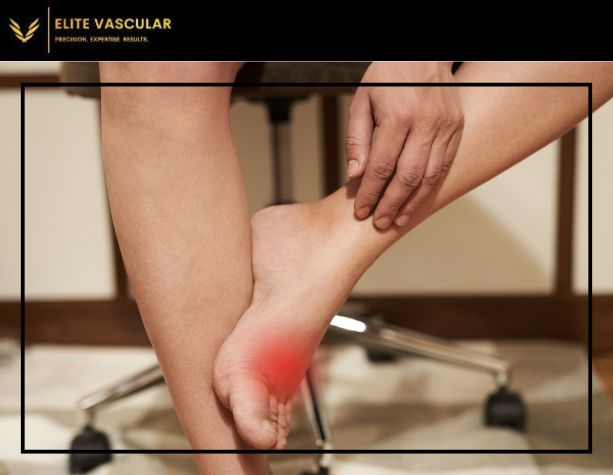- admin
- 0 Comments
Many medical professionals treat varicose veins and other venous insufficiencies with vein ablation. Although it is usually safe and efficient, some people could have long-term adverse effects. The nature of these side effects will be discussed in this article together with useful techniques for controlling them, therefore guaranteeing best recovery and well-being.
Vein ablation: what is it?
Closing up a diseased vein to divert blood flow to healthier veins is the minimally invasive technique known as vein ablation. Vein ablation can be accomplished using a number of techniques including:
- RFA, or radiofrequency ablation, makes use of heat produced by radiofrequency energy.
- Using laser light, Endovenous laser therapy (EVLT) closes off the vein.
- A solution is injected into the vein in sclerotherapy to force it to shut and collapse.
- Usually carried out outpatient, these operations have a great success rate in relieving varicose vein problems.
Typical Long-Term Side Effects from Vein Ablation
Though vein ablation is usually safe, some people may have long-term negative effects. These can consist of:
Continual discomfort and pain
Some patients find that their treated area causes continuous pain or discomfort. This can result from inflammation or nerve irritability brought on by the operation.
Skin Development
Patients could find changes in the skin over the treated vein. This can include:
- Hypo Pigmentation
- Lightening Of The Skin
- Hyper Pigmentation
- Darkening Of The Skin
- Perhaps Scarring.
Nerve Damage
Though rare, nerve injury might arise during vein ablation. In the treated area this could cause numbness, tingling, or a burning feeling.
Varicose Veins Recurrence
Sometimes fresh varicose veins form even following effective vein ablation. This could result from underlying venous insufficiency requiring additional therapy.
Swelling
In the treated limb, persistent edema can develop especially in cases of an underlying lymphatic drainage problem.
Oversaw Long-Term Side Effects
For those who have had vein ablation, good control of long-term adverse effects will greatly enhance their quality of life. Here are some ideas to give thought:
Pain Management
- Medications for pain management include over-the-counter acetaminophen or ibuprofen to assist ease discomfort.
- Wearing compression stockings can aid with pain relief by improving blood flow and thereby lowering edema.
- Physical therapy activities help to strengthen the leg muscles and increase circulation, so lowering pain over time.
Skin Care
- Topical Remarks Managing skin changes including hyper pigmentation or scarring can be accomplished with lotions or ointments recommended by a dermatologist.
- Shielding the treated area from sunlight will help to stop more skin damage and discoloration.
Correcting Nerve Damage Medications
- Medications prescribed to assist control nerve pain and discomfort include pregabalin or gabapentin.
- Sometimes severe nerve pain is indicated to be relieved using nerve blocks or other interventional treatments.
Preventing Recurrence
- Frequent Check-Ups: Varicose vein recurrence can be monitored and any new problems quickly addressed with follow-up visits to a vascular specialist.
- Maintaining a good weight, getting regular exercise, and avoiding extended periods of standing or sitting will help stop fresh varicose veins from developing.
Control of Swellings
- Wearing compression stockings helps to enhance lymphatic drainage and help to lower edema.
- Periodically raising the legs during the day helps increase circulation and aid to lower swelling.
- Specialized massage techniques can help lymphatic drainage be improved and edema in the treated area be lowered.
When Should One Seek Medical Advice?
If you run into any of the following, you should keep in touch with your healthcare practitioner and get medical advice:
- Extreme pain that resists conventional painkillers is known as severe pain.
- Redness, warmth, pus, fever; all of which can point to an infection; are among the signs of infection.
- Any aggravation of symptoms or new ones that develop should be seen by a healthcare provider.
- Constant swelling that does not get better with home care practices.
In summary
Though it might have long-term negative effects for some people, vein ablation is a successful treatment for varicose veins. Understanding these possible side effects and putting plans to control them would help patients to get better results and raise their general quality of life. Managing these long-term impacts effectively depends mostly on regular follow-ups with a healthcare professional, appropriate pain medication, skin care, and lifestyle changes. See your healthcare provider always to customize a management plan fit for your situation and guarantee the greatest possible recovery.
